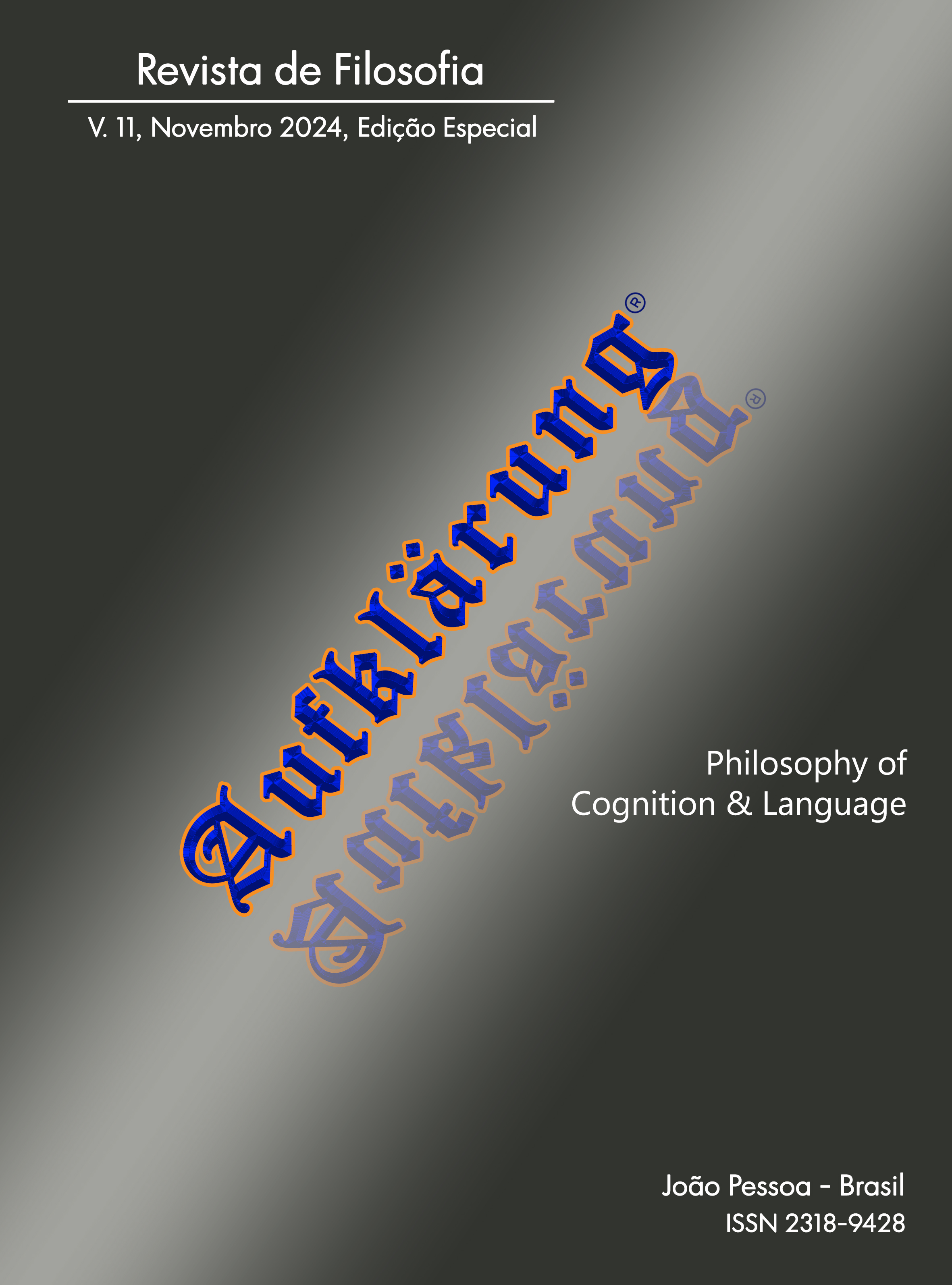Why not so serious? Pragmatic devices in jokes
DOI:
https://doi.org/10.18012/arf.v11iEspecial.70040Palavras-chave:
Humor, Incongruity theory, Conversational implicatures, Speech acts, PresuppositionsResumo
The fundamental question in philosophy of humor is: what makes us laugh? In this paper, we will hold the so-called incongruity theory, according to which laughter is provoked by the presentation of inconsistent features in an utterance. For that, we will analyze how pragmatics of language provides ways of presenting incongruities in written and spoken jokes and, hence, provoking a sensation of comic amusement in an audience. Our focus will be on conversational implicatures, speech acts, and presuppositions, and how they are used in joking. This is not an exhaustive analysis of all the ways incongruities are rendered in comic utterances; of course, there are other ways of presenting disharmonies, such as by means of semantic features. Finally, we will discuss whether jokes should be considered as a distinct kind of speech act, instead of just a parasitic use of language.
Downloads
Referências
ATTARDO, S. The violation of Grice’s maxims in jokes. In: COSTA, D. (Ed.) Proceedings of the sixteenth annual meeting of the Berkeley Linguistics Society. Berkeley: Berkeley Linguistics Society, 1990. p. 355-362.
ATTARDO, S. Humor and pragmatics. In: ATTARDO, S. (Ed.) The Routledge handbook of language and humor. New York: Routledge, 2017. p. 174-188.
AUSTIN, J. L. How to do things with words. Oxford: Oxford University Press, 1962.
BLANCO SALGUEIRO, A. Cómo hacer bromas con palabras. Teorema, v. 43, p. 47-61, 2024.
BLANCO SALGUEIRO, A. Bromear como acto de habla y la relatividad lingüística del humor. Análisis Filosófico, v. 43, p. 69-92, 2023.
CAMP, E. Just saying, just kidding: liability for accountability-avoiding speech in ordinary conversation, politics and law. In: HORN, L. H. (Ed.) From lying to perjury: linguistic and legal perspective on lies and other falsehoods. Boston: De Gruyter Mouton, 2022. p. 227-258.
CARROLL, N. Humour: a very short introduction. Oxford: Oxford University Press, 2014.
DUNBAR, G. Phonetic and functional aspects of speech laughter: towards an expressive cognitive phonology. CogniTextes, v. 11, s/p, 2014.
GRICE, H. P. Meaning. The Philosophical Review, v. 66, p. 377-388, 1957.
GRICE, H. P. Logic and conversation. In: GRICE, H. P. Studies in the way of words. Cambridge, MA: Cambridge University Press, 1989. p. 22-40.
HORISK, C. Dangerous jokes: how racism and sexism weaponize humor. Oxford: Oxford University Press, 2024.
KARTTUNEN, L. Presupposition: what went wrong? Proceedings of SALT, v. 26, p. 705-731, 2016.
KULKA, T. The incongruity of incongruity theories of humor. Organon F, v. 14, p. 320-333, 2007.
LEVINSON, S. C. Pragmatics. Cambridge: Cambridge University Press, 1983.
MORREALL, J. (Ed.) The philosophy of laughter and humor. New York: State University of New York Press, 1987.
MORREALL, J. Philosophy of Humor. In: ZALTA, E. N. (Org.) The Stanford Encyclopedia of Philosophy, 2023. <>.
RASKIN, V. Semantic mechanisms of humor. In: CHIARELLO, C. et al. (Ed.) Proceedings of the Fifth Annual Meeting of the Berkeley Linguistics Society. Berkeley: Berkeley Linguistics Society, 1979. p. 325-335.
SCHOPENHAUER, A. Die Welt als Wille und Vorstellung [1819]. Hamburg: Felix Meiner Verlag, 2020.
SCHRÖDER, M. Experimental study of affect bursts. In: COWIE, R.; DOUGLAS-COWIE, E.; SCHRÖDER, M. (Ed.) Proceedings of the ISCA workshop “Speech and Emotion”: a conceptual framework for research. Newcastle: International Speech Communication Association, 2000. p. 132-137.
SCRUTON, R. Laughter. In: MORREALL, J. (Ed.) The philosophy of laughter and humor. New York: State University of New York Press, 1987. p. 156-171.
SEARLE, J. Expression and meaning. Cambridge: Cambridge University Press, 1979.
STALNAKER, R. C. Context and content. Oxford: Oxford University Press, 1999.
STIBBARD, R. Automated extraction of ToBI annotation data from the Reading/Leeds emotional speech corpus. In: COWIE, R.; DOUGLAS-COWIE, E.; SCHRÖDER, M. (Ed.) Proceedings of the ISCA workshop “Speech and Emotion”: a conceptual framework for research. Newcastle: International Speech Communication Association, 2000. p. 60-65.
STRAWSON, P. F. Intention and convention in speech acts. The Philosophical Review, v. 73, p. 439-460, 1964.
Arquivos adicionais
Publicado
Como Citar
Edição
Seção
Licença

Este trabalho está licenciado sob uma licença Creative Commons Attribution 4.0 International License.
Política de Direito Autoral para os itens publicados pela Revista:
1.Esta revista é regida por uma Licença da Creative Commons aplicada a revistas eletrônicas. Esta licença pode ser lida no link a seguir: Creative Commons Attribution 4.0 International (CC BY 4.0).
2.Consonante a essa politica, a revista declara que os autores são os detentores do copyright de seus artigos sem restrição, e podem depositar o pós-print de seus artigos em qualquer repositório ou site.
Política de Direito de Uso dos Metadados para informações contidas nos itens do repositório
1. Qualquer pessoa e/ou empresa pode acessar os metadados dos itens publicados gratuitamente e a qulquer tempo.
2.Os metadados podem ser usados sem licença prévia em qualquer meio, mesmo comercialmente, desde que seja oferecido um link para o OAI Identifier ou para o artigo que ele desceve, sob os termos da licença CC BY aplicada à revista.
Os autores que têm seus trabalhos publicados concordam que com todas as declarações e normas da Revista e assumem inteira responsabilidade pelas informações prestadas e ideias veiculadas em seus artigos, em conformidade com a Política de Boas Práticas da Revista.






































